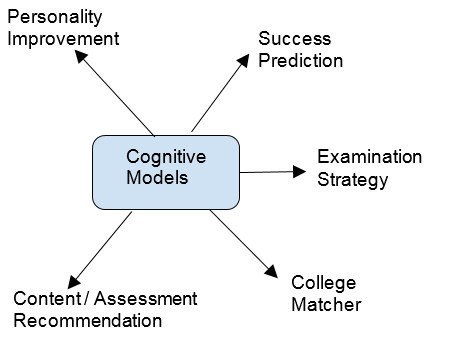Technology in Education - Future Directions
By Sujit Bhattacharya, Co-Founder & Chief Digital Officer, CL Educate
The application of technology in education businesses has to address some of the key drivers of student learning and business growth. Among the new technologies, cognitive sciences hold out a lot of promise for creating the next era of solutions.
Academic Clickstream Analytics
One of the key challenges in delivering education revolves around the problem of knowing where each student is in terms of meeting his or her learning objective. To do this, an intelligent system must be able to diagnose the specific competency areas of every student and create an individualised knowledge graph per person.
A educational entity would usually have a large number of examples of highly successful students who have traversed diverse learning paths and accomplished academic goals. It is also very probable that they have left a big data of digital imprints along their learning journey. These imprints of a student may be a detailed log of effort, insights about understanding of subjects, and results of psychometric tests, which reveal psychometric traits and attitudes.
Ed tech savvy teams can use machine learning and artificial intelligence to analyze the the ‘academic clickstream’ and eventually create reliable learning strategies which can be pursued by later students. Since these strategies are created by real word training sets and machine learnt rules, they can be relatively free of judgement bias which a human academic advisor may have.
Uses of the Academic Clickstream Analytics Model
The problems of success prediction can be solved by by neural networks/ artificial intelligence algorithms by capturing the various features which influence the outcome. Similarly, the complex task of recommendation of colleges is perhaps a typical classification problem to be solved by a smart. Statistical models can be easily built to provide the next learning content or a set of assessments to make the learning journey of a student time efficient and academically effective. Examination strategy advise given by teachers usually revolves around identifying typical patterns of enough ineffective behaviours during examination time. Providing this advice to each and every student can be enormously time consuming effort and quality recommendations and therefore be much easily provided using advanced cognitive models.
Taking advantage of the advances in NLP technologies, self-reflective student essays can be analysed and psychometric insights can be gleaned from personality models which can reveal improvement areas in a students behaviour traits, such as internal locus of control, or perceptiveness to feedback, which can ultimately lead to success in qualification interviews.

Intelligent Content Recommendation and Regeneration
A large diversified education company needs to able to effectively churn its academic output and ensure reusability of content across various examinations. To this effect we will have to build a web of structured academic metadata which connects concepts and maintains relationships. Historical data of past student interactions with the existing content can be studied to recommendation the most relevant content for rapidly constructing large number of test papers. This can be done in a automated matter leading to large reductions in academic manpower and increased reliability of assessment item collections.
Robotic Tutoring and Academic Support
In our interactions with thousands of students over the years, hundreds of thousands of questions have been answered to students. These could range for career guidance, college recommendations, direct academic queries, exam strategies or even motivational interventions.
With the advent of NLP technologies we can use a host of methods to classify past historical data to build a machine scalable model of query handling. The ability to ingest large volumes of relevant information, and with the use machine learning and NLP techniques, we can attempt to build a cognitive teaching assistant which can help every teacher in CL become far more effective. This also opens the doors for robotic academic nurturing which can scale quality of academic delivery.